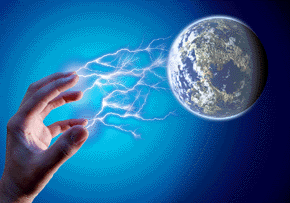
Atheists claim that Christians have re-defined omnipotence because God of the OT appears not to be omnipotent and becuase Christians supposedly re-define in terms other than doing anything one can think of or name.
Originally Posted by themuzicman

In the same way it is a denial of omnipotence to say "he" can't control it.
Backup
Let's face it. The Christian God is not omnipotent. This is why Christians have had to redefine omnipotent to mean something less.
Skylurker (same thread)
would it be denial of God's omnipotence to say that God cannot create something more powerful than itself?Austine Cline:
About.com, "God is Omnipotent
what does it mean to be 'all powerful.'
Unfortunately, the most absolute sense of omnipotent has been found to be incoherent. If God were truly omnipotent in an absolute and unlimited sense, then God could be capable of both existing and not existing at the same time, meaning that every form of theism and every form of atheism would be equally justified at all times simultaneously. Such a God could be capable of informing humans of certain requirements for attaining heaven and avoiding hell but actually holding to entirely different requirements without ever actually lying.Webster's isn't much help but it's better than letting atheists assert opinions.
webster's online
Notice "virtually unlimited" so it means almost but not quite. It also says authority of influence not the ability to do nonsense.1often capitalized : almighty 12: having virtually unlimited authority or influenceomnipotent ruler>
Wallace Smith
How is God Omnipotent, Omniscient and Omnipresent.
extracted from God and the
"Three 'O's in the Living Church News, Sep-Dec 2007).
2007
This is, perhaps, the easiest of the three to answer: Yes, God is omnipotent! There is even a verse that, in the King James Version and New King James Version, uses this very word: “Alleluia! For the Lord God Omnipotent reigns!” (Revelation 19:6).The Greek word translated as “Omnipotent” here is pantokrator, meaning “All-ruling” or (as it is more frequently translated) “Almighty.” When we say God is “Almighty,” we are stating our belief in His authority and rulership over all creation, and the Bible is firm in declaring this fact. Even though Satan is now the “god of this age” (2 Corinthians 4:4), it belongs to him only because Almighty God has granted it to Him: “And the devil said to Him, ‘All this authority [over all the kingdoms of this world] I will give You, and their glory; for this has been delivered to me, and I give it to whomever I wish’” (Luke 4:6).
What's really happening is Christians are not re-defining it but they are talking it back from atheists who butchered the meaning of the word. Atheists distorted the meaning so they could ask question like those Cline is asking, not meant to encourage real learning but merely an overture to mocking. Questions like the one about the rock are merely there to create controversy and to create the sense that 'O here's something Christians can't answer." The argument is based upon taking omnipotent to mean "God can do nonsense.
That is no better than saying "if god can smell next Thursday then he's not all powerful so he can't be God." But wait, days of the week don't have smells. It's it a bit silly to require God to smell days of the week. "O no he's supposed to be able to do everything or anything." who says? where does it say God can do nonsense things that are logical absurdities? This is why I say that god is limited to logical necessity. Something that is not logically necessary in the linguistic sense is not a valid concept. Husbands can't be unmarried men. Squares can't be circular.
Many modern theologians no longer use the omnis they speak of "maximal greatness." I vacilate between that opion and just arguing what I'm arguing now that a ture understanding of the term omnipotance (understood as pantokrator) need not include the doing of nonsense.
another issue some have raised is that of free will. If God allows free will then he's limited, if he doesn't then it's not free. The answer is obvious. this is anther attempt to foment difficulty. Voluntary limitation is not a limit on his ability but his own idea. That's not a drain on omnipotence.

No comments:
Post a Comment